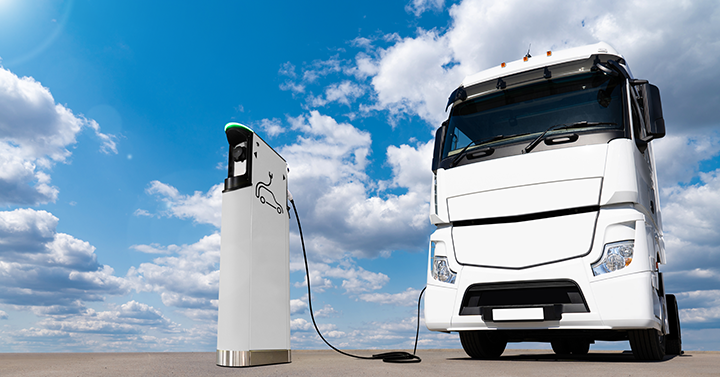Electric trucks are currently enjoying the spotlight, thanks to partnerships being formed between OEMs and EV startups, automated microfactories where delivery vans and buses will be assembled by multitasking robots, and Mack Trucks’ launch of an all-inclusive VaaS program to help simplify the purchase process for its battery-electric truck. But what does this mean for EV lubricants?
“Compared to the passenger vehicle segment, the penetration of EVs in the commercial vehicle population is expected to progress at a more modest pace due to techno-commercial considerations,” says Sharbel Luzuriaga, Project Manager of Kline’s Energy practice. “Nonetheless, the lubricant industry will not be immune to these transformational changes.”
Luzuriaga additionally believes that finished lubricants will play a central role in enabling the transition of the truck industry to carbon-neutral solutions and that they will increasingly be regarded as key elements of an ecosystem of solutions, given their role in improving the total cost of ownership. “While it’s anticipated that the deployment of full electric trucks will eliminate the use of motor oils,” he says, “it’s possible that this loss will be compensated by the emergence of dedicated fluids such as thermal management fluids, e-greases, and e-transmission fluids.”
So how, exactly, are electric trucks making their way to the big time?
EV Startups Hitching Their Wagons to the Automotive Giants
As one clear sign of where the market is heading, legacy auto manufacturers are partnering with EV startups. Ford and Rivian have signed a deal; Rivian is focused on building electric pickup trucks on a “skateboard” platform that can support future vehicles or be adopted by other companies. Hyundai Motor Group and Canoo have also announced a partnership. Canoo plans to produce commercial electric vehicles such as vans for vehicle-rental and ride-sharing services. Hyundai Motor Group has additionally committed to investing in Arrival, which is focused on launching electric buses and vans.
Nor are the automakers alone in partnering with EV startups. On March 2, the governor of Oklahoma announced plans to award Canoo $15 million to support the company’s total investment of more than $560 million for EV manufacturing facilities in Pryor, Tulsa, and Oklahoma City. These startups have also caught the eye of a growing number of corporations such as UPS, Walmart, and DHL, in addition to BlackRock, the asset-management behemoth.
Automated EV Microfactories and Expanded Servitization Offers
Arrival, backed by both UPS and the Hyundai Motor Group, is creating highly automated microfactories where its electric delivery vans and buses will be assembled by robots. While the production output of Arrival’s microfactories will be much smaller compared to that of traditional auto plants, the cost to build them will be far less — Arrival’s microfactories will cost $50 million compared to the $1 billion or more for “old-fashioned” auto plants — cost reductions that Arrival says will result in vans that are much less expensive than even those of other EV companies. Arrival plans to introduce 1,000 fully automated microfactories with local supply chains by 2026.
As another sign of which way the wind is blowing, Mack Trucks launched an all-inclusive VaaS (Vehicle as a Service) program to simplify the process and help customers better manage expenses associated with purchasing a Mack LR Electric BEV (battery electric vehicle).
Increased Demand for EV Trucks, Fueled by the COVID-19 Pandemic
With customers across the globe having shifted to e-commerce during the pandemic, and with no sign of the pace of online purchasing declining significantly, the need for delivery vans has similarly risen exponentially. In fact, demand for urban last-mile delivery, fueled by e-commerce, is expected to grow 78% by 2030, according to the World Economic Forum, with ESG (environmental, social, and governance) and carbon-reduction front and center. UPS plans to buy 10,000 Arrival electric vans over the next several years. In January 2021, GM launched BrightDrop, a new commercial-vehicle business unit offering electric first-to-last-mile products, software, and services. The company’s EV600 electric van, which went into production in September 2021, was instantly in high demand, boosted by an arrangement with Merchants Fleet, the leading fleet-management firm.

